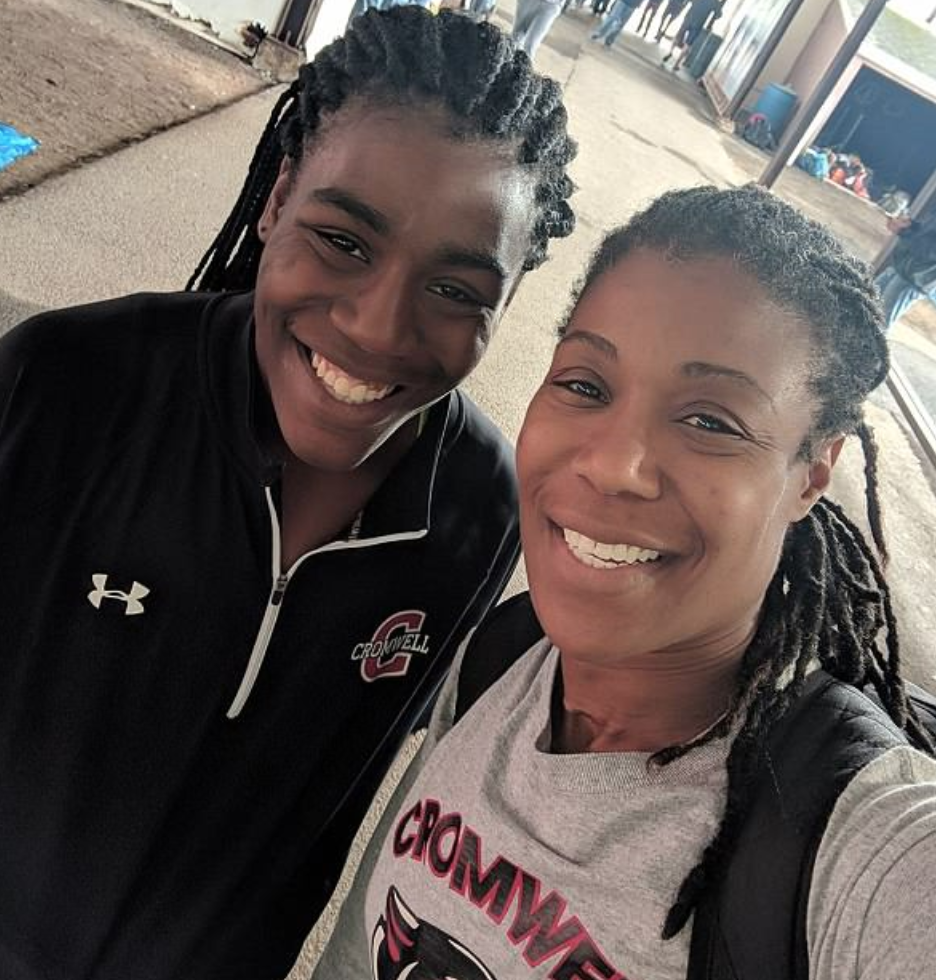Transgender track stars spark debate over 'unfair' sports rules

Two transgender track and field stars have angered people who believe they have an unfair athletic edge.
On June 4, Terry Miller and Andraya Yearwood, sophomores at different Connecticut high schools, competed in the State Open track and field competition’s female division. Although Miller won first place in the 100- and 200-meter dashes and Yearwood second place in the 100-meter dash, not everyone celebrated.
According to the Hartford Courant, a group of local parents and students have petitioned the Connecticut Interscholastic Athletic Conference (CIAC), an organization that oversees the state’s high school sports, with a combined 150 signatures, arguing that the teens shouldn’t play on girls’ teams.
Bianca Stanescu, whose daughter Selina Soule finished sixth in the 100-meter race Monday and who has referred to the issue as something “that has to be corrected,” per the Courant, launched one of the petitions. In it, she calls for athletes to play on teams based on their birth sex, with the exception of those who have undergone hormone therapy.

Soule agrees with her mom, telling the publication, “I think it’s unfair to the girls who work really hard to do well and qualify for Opens and New Englands. … These girls, they’re just coming in and beating everyone.” She added, “I have no problem with them wanting to be a girl.”
The Courant also reports that the second petition was started by Jarmaine Lee, a father of two male athletes, and was reportedly sent to every athletic director in the state.
Yahoo Lifestyle could not reach Miller or Yearwood for comment (and Yearwood’s mother declined an interview). Last year, Yearwood, a former cheerleader who attends Cromwell High School, told the Courant that she’s been expressing her gender since the first grade, when she wore a dress on Halloween, and in fifth grade, pink-and-purple furry boots.
CIAC’s stance on transgender athletes is clear. According to its handbook, “It would be fundamentally unjust and contrary to applicable state and federal law to preclude a student from participation on a gender-specific sports team that is consistent with the public gender identity of that student for all other purposes.”
The rules also state that a person’s gender is determined by the student. “Accordingly, when a school district submits a roster to the CIAC, it is verifying that it has determined that the students listed on a gender-specific sports team are entitled to participate on that team due to their gender identity and that the school district has determined that the expression of the student’s gender identity is bona fide and not for the purpose of gaining an unfair advantage in competitive athletics.”
Additionally, the state of Connecticut defines gender as “gender identity” and not one’s biological sex, making CIAC’s stance lawful.
“CIAC is all about inclusion when it comes to transgender students — that’s what Title IX and antidiscrimination are all about,” Karissa Niehoff, executive director of CIAC, tells Yahoo Lifestyle, adding that while the organization has not received a petition thus far, “The petitions will not initiate change.”
There have been similar cases. In March, a transgender boy on his high school wrestling team in Texas who was taking regular testosterone, wrestled girls due to laws that require athletes to compete as their birth gender, reported the New York Daily News.
And in 2015, a transgender girl from New Mexico was banned from playing on her school volleyball team due to similar state laws. “I just cried. It may not seem like a big deal, but it made me feel like I was less than my peers, that I didn’t have the same rights and the same privileges,” she told the Huffington Post. “And it really hurt knowing that I was still seen as a male in the state’s eyes.”
According to Kristen Dieffenbach, executive board member of the Association for Applied Sport Psychology, the issue of transgender people competing in sports has been controversial for decades. However, in the last several years most cases have involved people who had already transitioned.
“There are opinions that young people born male have a certain advantage due to having more testosterone which makes them stronger and faster and a childhood that may have encouraged more risk-taking and aggressive behavior,” she tells Yahoo Lifestyle. “But that’s not always the case — you have boys with low levels of testosterone, who weren’t raised in masculine cultures, or kids who are intersex. So it’s a very complicated issue.”
Dieffenbach adds, “Overall, it’s not right to ask kids where they sit on the spectrum of gender.”
Read more from Yahoo Lifestyle:
Model Munroe Bergdorf is beating the odds as a transgender woman of color
Transgender celeb Laverne Cox talks about her greatest challenge: ‘Getting out of my own way’
How NYC’s Trans Beauty Clinic is transforming lives from the inside out
Follow us on Instagram, Facebook, and Twitter for nonstop inspiration delivered fresh to your feed, every day.

